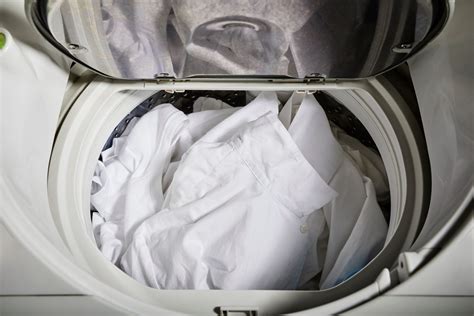Keep Your Gown Spotless: A Washing How-To
Wedding gowns, prom dresses, or even that cherished bridesmaid dress – these special garments deserve extra care to maintain their pristine condition. Knowing how to properly wash your gown can prevent damage and ensure its beauty lasts for years to come. This guide provides a comprehensive how-to, covering various fabric types and cleaning methods.
What Fabric is My Gown Made Of?
Before you even think about washing, identifying your gown's fabric is crucial. Different fabrics require different cleaning methods. Common gown fabrics include:
- Silk: Delicate and prone to damage, silk requires expert dry cleaning.
- Satin: Similar to silk, satin needs gentle handling and professional cleaning.
- Lace: Lace can be delicate and require specialized cleaning techniques to avoid damage. Hand washing might be appropriate for some lace, but always check the care label.
- Tulle: Tulle is generally quite durable but can be prone to snagging. Spot cleaning is often preferable to full washing.
- Polyester: More durable than silk or satin, polyester can often be machine washed, but always check the care label.
- Cotton: Cotton gowns are usually the most durable and can often be machine washed, again, always check the care label.
How to Hand Wash a Delicate Gown
For delicate fabrics like silk or lace, hand washing is often the safest option. Here's how:
- Prepare the area: Find a clean sink or basin. Fill it with cool or lukewarm water (never hot!).
- Add detergent: Use a mild detergent specifically designed for delicate fabrics. Avoid harsh chemicals or bleach.
- Submerge the gown: Gently submerge the gown in the soapy water, avoiding harsh scrubbing. Let it soak for 15-20 minutes.
- Rinse thoroughly: Rinse the gown thoroughly under cool, running water until all traces of soap are gone. Avoid wringing or twisting the fabric.
- Gently squeeze out excess water: Roll the gown in a clean towel to absorb excess water. Avoid twisting or wringing.
- Air dry: Lay the gown flat on a clean, dry towel, away from direct sunlight or heat. Allow it to air dry completely. Never put a delicate gown in a dryer.
Can I Machine Wash My Gown?
Some more durable fabrics, like certain types of polyester or cotton, might be machine washable. However, always check the care label first! If machine washing is permitted:
- Use a mesh laundry bag: Protect your gown from snagging by placing it inside a mesh laundry bag.
- Select a delicate cycle: Choose the gentle cycle with cool or lukewarm water.
- Use a mild detergent: Avoid harsh chemicals or bleach.
- Air dry: Remove the gown from the washing machine immediately and air dry it flat. Do not put it in the dryer.
How to Treat Stains on Your Gown
Accidents happen. If you encounter a stain on your gown, act quickly.
- Identify the stain: Different stains require different treatments.
- Blot, don't rub: Always blot the stain gently with a clean cloth to avoid spreading it.
- Use a stain remover: Use a stain remover specifically designed for the fabric type. Test it on an inconspicuous area first.
- Follow the instructions: Carefully follow the instructions on the stain remover product.
- Rinse and air dry: Rinse the treated area thoroughly and air dry the gown completely.
What About Dry Cleaning?
For delicate or heavily embellished gowns, professional dry cleaning is often the best option. A reputable dry cleaner will have the expertise and equipment to clean your gown safely and effectively.
How Often Should I Clean My Gown?
This depends entirely on how often you wear it and the fabric. For gowns worn only once or twice, cleaning after the event is usually sufficient. If you wear your gown more frequently, you'll need to consider more regular cleaning, always using appropriate methods based on the fabric and care instructions.
Can I Iron My Gown After Washing?
Ironing is usually a last resort and only for certain fabrics. Always check the care label for ironing instructions. If ironing is allowed, use a low setting and a pressing cloth to protect the fabric.
What are the signs that my gown needs cleaning?
Visible stains, lingering odors, or a generally dull appearance are all signs that your gown could benefit from a cleaning.
By following these tips and understanding your gown's fabric, you can keep your special garment looking its best for years to come. Remember, prevention is key. Handle your gown with care, and always check the care label before attempting any cleaning method.

